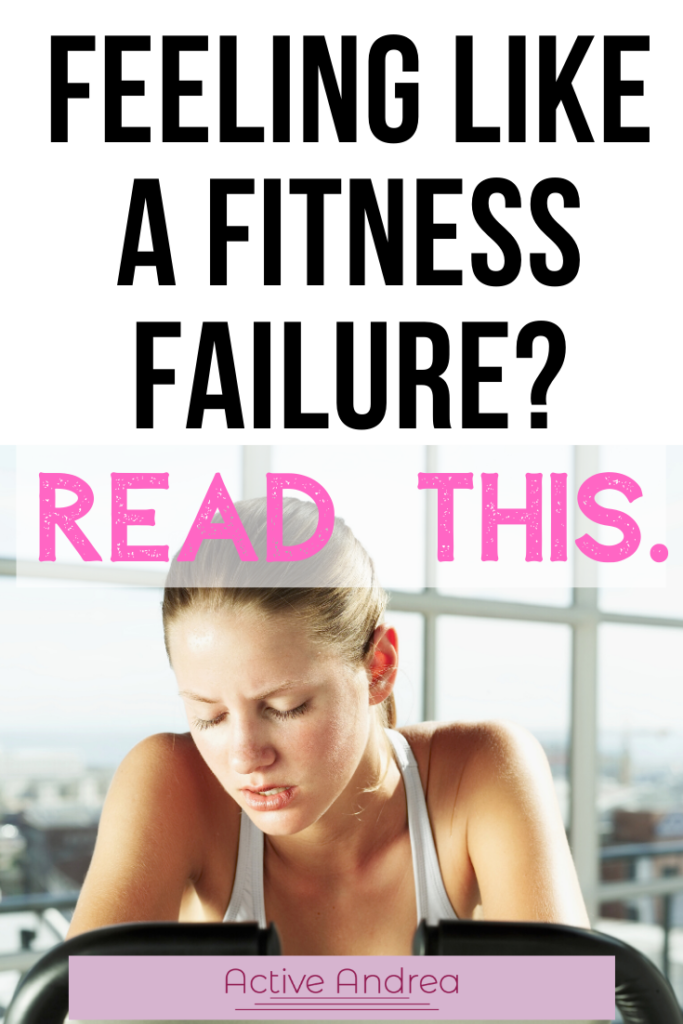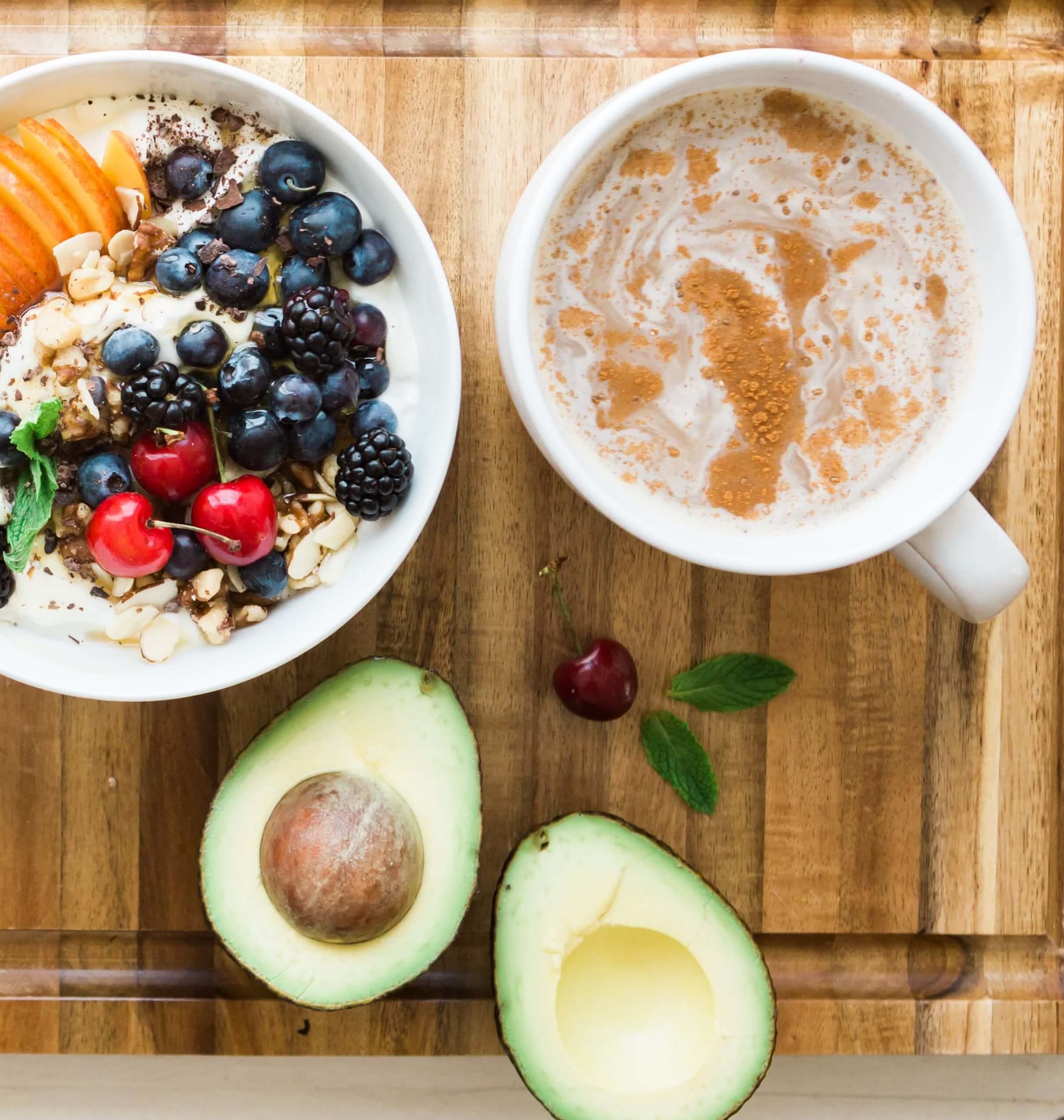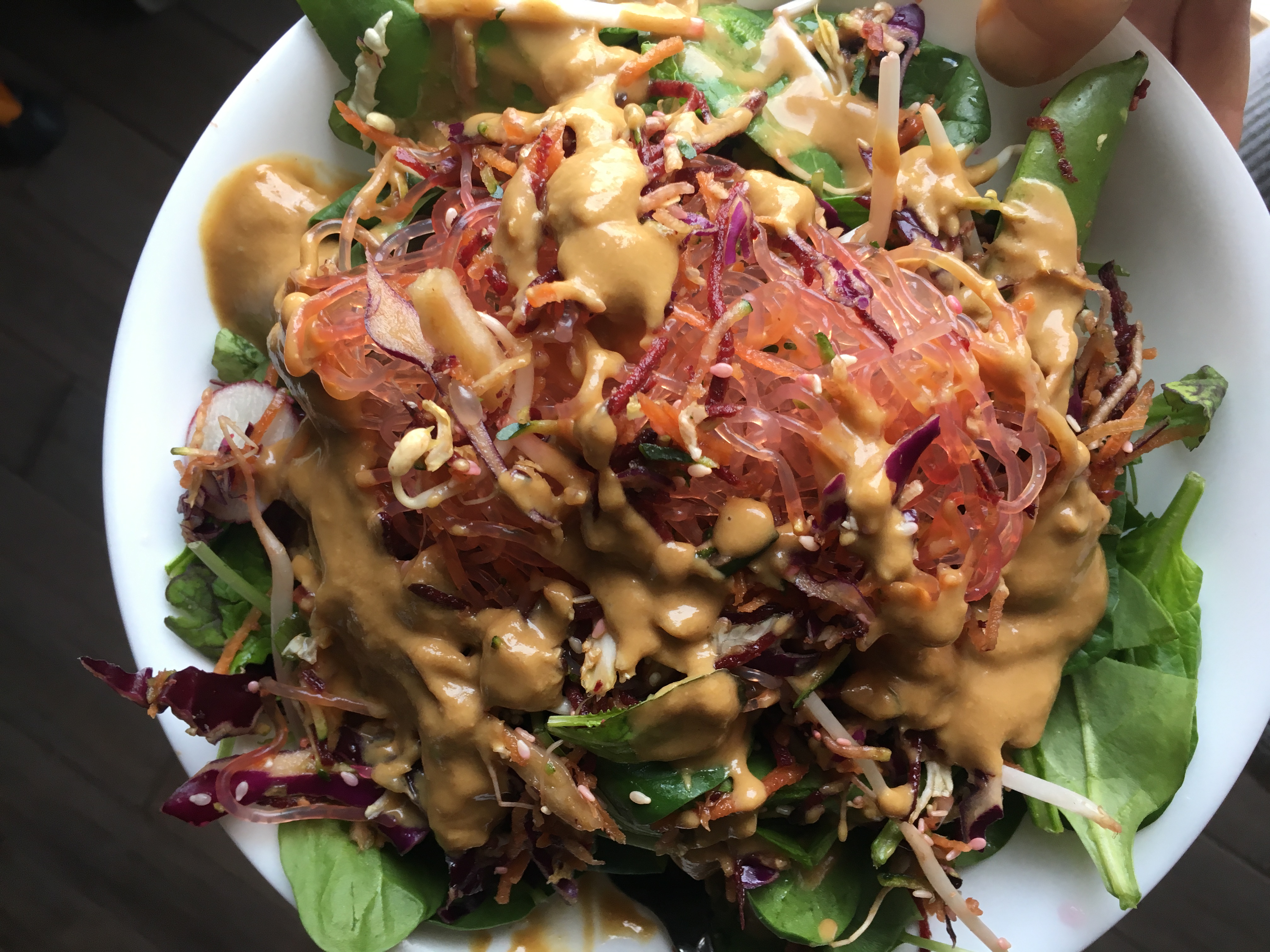Feeling Like a Fitness Failure? Read this.

“…many days I do manage to get up and get my workout in the wee small hours of the morning—leaving my house around 4:45 to head to the gym or out for a run. But on the days that I don’t, I feel guilty and spend the day beating myself up. Why am I so weak? I should have gotten out of bed. I should have my workout done. Now, when am I going to find the time to work it in?”
– a female participant in one psychologist’s study on exercise guilt, via Psychology Today
Can you relate to this woman’s feelings? Fitness and diet culture has the unfortunate effect of making us feel like we’re constantly failing if we go off-track. Any day that doesn’t go according to plan makes us feel guilty and less-than.
If you’re reading this, you probably know a bit of what I’m talking about. You started working out because you wanted to improve yourself in some way mentally or physically, yet sometimes these guilt-ridden thoughts make you dream about quitting, if just to relieve the constant battles and fear of failure.
Or maybe you’re someone who has been exercising your whole life, even if you don’t particularly enjoy it. But those guilty thoughts when you skip a day make you continue doing it. Your fear of weight gain is motivating you to do it, so that makes it a good thing, right?
But what if you didn’t have to fear failure or manage the guilt? What if you could start exercising out of love instead of fear?
Under Pressure
We all love a good transformation. Ugly house to pretty. Overweight to fit and strong. Unemployed to millionaire. It’s all so inspiring!
If you start a fitness program as a short-term avenue to a transformation, you are likely putting pressure on yourself to achieve results within a given amount of time. That’s totally normal. It’s one of the basics of setting a SMART goal. T is for time-bound.
The problem, though, is we can find ourselves going to extreme measures to meet a certain goal. Especially when it comes to weight loss – a cornerstone of the fitness industry – we’ll take extreme measures to do it in a finite amount of time, leading to added stress, undereating, over-exercising, and even eating disorders and depression.
The next time you find yourself feeling guilty about not working out or feeling defeated when you leave the gym, walk yourself through these steps:
1. Remember Your Body Does Not Define Your Worth
I don’t care what you look like. No matter your size, weight, strength, speed, body fat percentage, diet, whatever, you have worth as a human being. Your body is part of you, and it deserves your love and respect, not your self-degradation.
Repeat this often. Especially when you find yourself nit-picking your image in the mirror.
2. Ask Yourself Questions
As humans, we’re pretty good at convincing ourselves of things, regardless if they are true or not. The best way to figure out if you should listen to those thoughts swirling around is to ask yourself questions. It helps to write them down so you have a visual.
It works like this: say you planned to go to spin class after work but you decided to skip it, and now you’re feeling guilty.
You can ask yourself: Why did I skip class?
Answer: I was too tired.
Then you ask: Why do I feel guilty for skipping?
Answer: Because I ate pizza last night for dinner and need to burn it off.
Ask: Why do I need to burn it off?
Answer: Because if I don’t, I’ll gain weight.
Question any conclusions you’re making. Is it really true that an extra slice or two of pizza will make you gain significant weight? Why do you feel like you will? And why is it so important for you to not gain weight? What impact will it have?
This self-questioning practice helps us figure out if what we are thinking is benefiting our mental state. It also helps us self-reflect. Maybe the reason you’re skipping spin class is because you actually don’t enjoy spin. Maybe you’re only doing it because you believe it will help you achieve a certain body type. Or because you’ve simply always done it and haven’t realized you stopped liking it.
If you are forcing yourself to exercise or eat in a way you don’t enjoy, it’s really important to question this and understand your reasons for doing it.
For example, I don’t particularly love foam rolling, but I do it because I know it will help my mobility and recovery, which to me makes it worth it. I’m taking care of myself. But if I was only doing it because I thought it would reduce cellulite, I would question this thought and ask, is there another way I can reduce cellulite that’s more enjoyable, like lifting weights? Then I could swap out the painful foam rolling for weights. Also, does having cellulite or not having it really matter in the big picture?
If you start to spiral with your self-talk Q&A, go back to step one. Remember, you already have value. Your daily calorie burn, calorie intake, and appearance doesn’t change this.
Side Note
One caveat with this step: if you find yourself starting to question all your decisions in a way that stops you from taking action, it’s important to ask yourself about the importance of the decision. Will this decision matter five years from now? A year from now?
The goal for questioning your thoughts is to make choices that improve your overall well-being and help you create a fitness routine you enjoy, rather than adopting a routine you think you “should” do.
3. Find Your Why
Once you’ve asked yourself some questions, you hopefully will be closer to figuring out why you are working towards this healthy, fit lifestyle in the first place. For some, it might be a more practical reason like lowering your cholesterol or losing weight. Though I encourage you to dig even deeper and ask why those goals are important to you.
Ideally, your fitness why has an intrinsic reason rather than extrinsic. Extrinsic motivation – like I want to lose 20 pounds – can be great for short-term results. If done with a healthy mindset, these types of goals are helpful motivators for many people. But once you lose 20 pounds, then what? How do you stay motivated?
The worry is that these types of extrinsic, appearance-based goals can lead people down a road of chasing body-aesthetic ideals, which could cycle back to guilt and fear-based thoughts. If you’re already struggling with guilt and negative self-talk, take some time off from goals centered around how your body looks.
An intrinsic fitness why focuses on the emotional benefits of exercise. With a fitness why like, “I want to feel less anxious,” the benefits are felt rather than seen, and the positive returns have no limit. If you’re someone who has struggled with yo-yo dieting and exercise fads in the past, I strongly encourage this approach.
You can still achieve extrinsic, number-based goals with an intrinsic why. If your goal is to lose 20 pounds, just put a why behind the reason, like improving self-confidence or dedicating time to self-care.
By focusing on an intrinsic why, you’ll be more likely to take up exercise you enjoy, which will lead to more consistency and longer-lasting results.
4. Make It Easy
When you’re struggling with feelings of guilt and negative self-talk about your fitness routine, the best thing to do is relieve the pressure on yourself and make things easier, rather than giving up entirely.
When I was training for my first marathon, I realized the only way I would finish the longer runs is if I let myself run slower than I normally did. I was afraid that running slower would make me less fit, but I did it anyway. I was able to recover better and run more miles than I ever had, while truly enjoying my runs for the first time in a long time.
Let’s go back to that spin class you’re skipping. You realize you don’t enjoy it because it feels so hard. But instead of skipping it entirely ask, how can I make this easier? Maybe that day you give only 70% effort on the sprints, or you allow yourself to dial back the resistance more than usual. That effort is still better than skipping the class, and you might find yourself enjoying it again.
The same is true for healthy eating. Fitness culture and the media love to overcomplicate healthy eating with restrictive diets that can be hard to stick to, leading to guilt and fear of certain foods. Maybe all you need is to focus on eating fruit instead of chips as a snack. Or drinking more water during the day. Pick the easy habits first.
5. Avoid Comparisons
Comparing yourself to others or to your past self is a normal, human habit. If you’re feeling like a failure in your fitness routine, ask yourself if it’s because you’re comparing yourself to others or to your past achievements.
For competitive people, comparison feels like a natural state of mind. How can you compete if you’re not comparing yourself to people? While competition can be fun and enjoyable, it can be damaging to your mental state if it’s affecting your self-worth.
If you’re a competitive person who tends to have negative self-talk when you lose, try finding activities where you can focus on self-competition, like sticking to a consistent workout schedule or doing as many burpees as you can in a minute. If the negative-talk and feelings of failure continue when you don’t improve, take a break from anything competitive altogether. Go back to step three and find an intrinsic fitness why.
When I first started doing yoga, I would “compete” against the other people in the class, attempting the hardest pose variations, doing all the inversions, pushing my flexibility to its limits. As a generally competitive person, this was my natural habit. It was only through doing yoga at home, alone, that I realized this competitive mindset was unnecessary and actually hindered my progress on the mat. It took taking myself out of the class environment to stop comparing myself to anyone else’s practice.
While you’re revamping your mindset around exercise and healthy living, stay accountable on yourself when you notice comparison thoughts. For example, if while scrolling through Instagram you see someone with a perfect six-pack and find yourself feeling less-than in comparison, go back to step one. Remind yourself you have value no matter what you look like. Ask why you want a six-pack, and if that result will enhance your life in any way.
It’s perfectly fine to want a certain aesthetic look and work towards that. But it’s not fine if it’s negatively impacting your mental health. For social media fitness inspiration photos especially, keep in mind these photos can be deceiving and do not capture someone’s mental health.
The Bottom Line
Exercise and healthy eating should make you feel better about yourself. When fear, guilt, shame, and negative self-talk start to take over your fitness motivations and control your behavior, it’s time to question the validity of these thoughts and change your routine.
If you approach exercise and eating from a foundation of long-term growth, love, and respect rather than short-term body aesthetics and superficial achievement, you’ll find so much more enjoyment in your fitness lifestyle.





